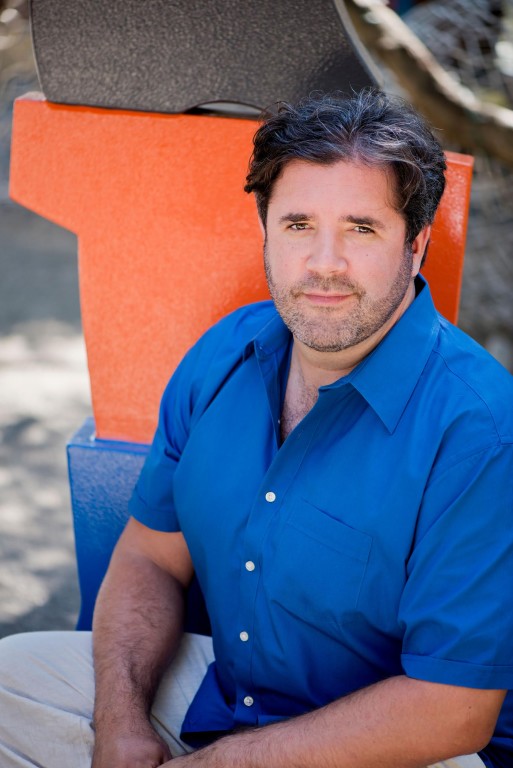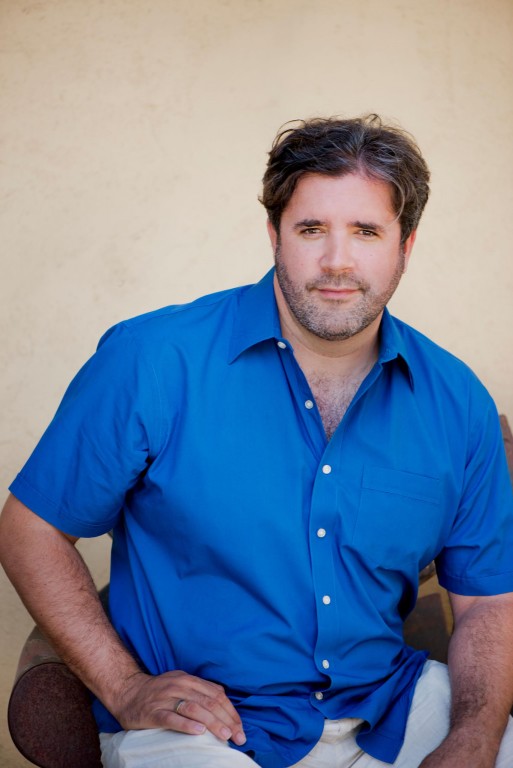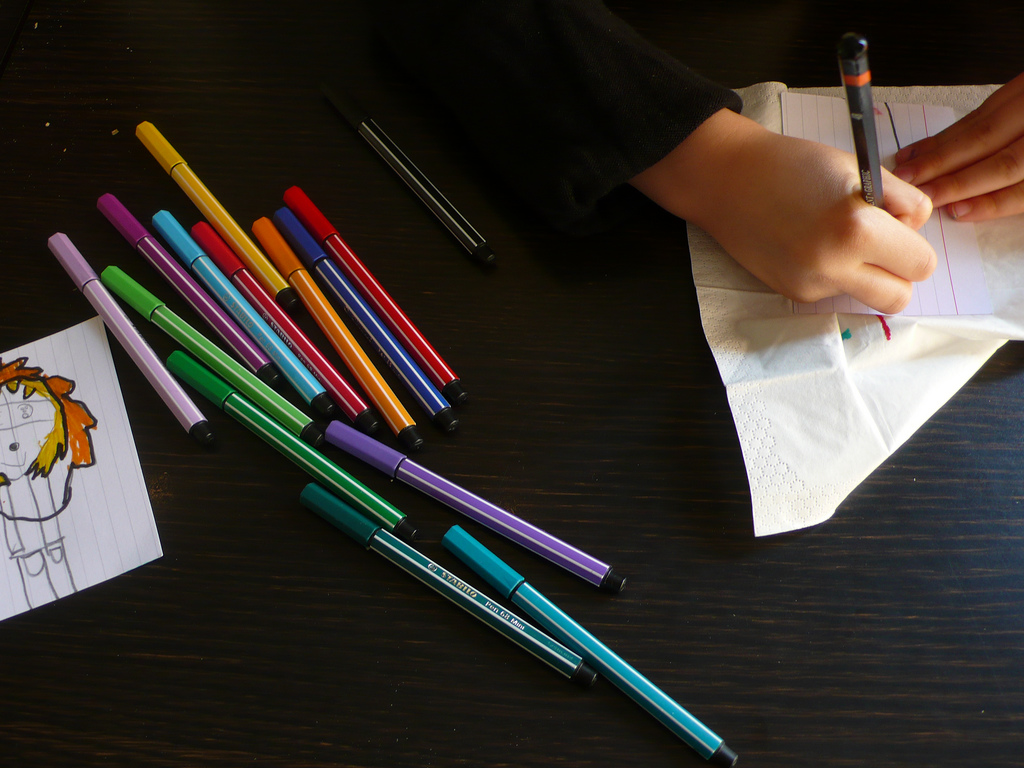SevenPonds speaks with marriage and family therapist Daniel Clifford. Through his work as a counselor and yoga instructor, Daniel has expertise in coping with complicated grief mentally and physically. He began his work as a counselor in 2010 and has since operated his family counseling office in San Francisco. He works with adults and children to heal after significant losses.
Marissa: What got you interested in the counseling world?
Daniel: It was a calling that I had. I was going through lots of what I’ll call grief in some ways about not having a fulfilling life and always wondering why. I started in my mid- to late 20s, and over the course of time I got really involved in reading about psyche, and I actually started seeing a therapist myself and started studying aspects of Plato and Aristotle with regard to the soul. I found myself eventually looking for graduate schools. That journey started about 10 years ago.
Marissa: Since then, you’ve focused a lot of your work on complicated grief. What exactly is complicated grief?
Daniel: I feel it’s really sort of a subjective thing. Particularly there’s a lot of conversation about including it in the recent release of the next DSM 5. They’ve tabled it to be in consideration for the next volume because it’s really a subjective construct. What my experience has been in working with the bereaved and those in grief, we culturally at this point do not give a whole lot of permission to be sad or depressed. The reality is it is an emotional state. And so what we do is do everything we can to push people into happiness and joy through various aspects, including medications, and never getting into that space and suggesting that’s a bad place to be.
And what’s complicated about it is that there’s a mixed bag of emotion…
My experience has been that people never actually go there to grieve and actually feel the loss, that broken heart of someone passing, whether that’s a grandparent or a sibling or even a spouse. You get into a place in midlife or later in life never having to actually grieve your losses. So when you get into a complicated grief state, you’re grieving — typically I see a client who is grieving for one specific loss, and the next thing you know it unravels to every person that they lost in their life. And what’s complicated about it is that there’s a mixed bag of emotion, and it usually runs the whole gamut of emotions teetering back and forth between anger and sadness and depression and loss, and you’re not quite sure at what point who you’re grieving and why. This feels uncomfortable because you think, “I shouldn’t feel angry toward my spouse,” but you might actually feel an anger toward your parents, or whatever it may be, and then all of the sudden that gets repressed again. From my experience, it’s been an unraveling of a lifespan of grief that occurs in a complicated way.
Marissa: What’s the difference between someone experiencing a complicated grief compared to someone who experiences a simpler grief?
Daniel: If it’s not a “complicated grief scenario,” working with one specific loss is fairly simple on paper. I don’t want to make it sound like grief and working with bereavement is simple in any way. It’s simple on paper because you can reconstruct that relationship: What was good; what was uncomfortable. From that, how do you honor the loved one that has passed? When you get into a complicated state, there are several traits that you have incorporated into your life over time from the many losses that you’ve had. To actually focus in on one, like I said, is an unraveling, and really a taking apart of every single relationship you’ve ever had in your life. And for someone who has not really processed or grieved and felt that experience emotionally, it’s a scary, scary place.
You find that you end up doing a lot of trauma work with them.
What you end up doing and end up finding is that it gets into a trauma place. You find that you end up doing a lot of trauma work with them. This moves directly into the somatic work and whatnot, which is with the yoga stuff that I’ve been doing. How do you experience your body in those states and know where you feel it, and what sort of emotion speaks to you if you work with that pain in your back, or shoulder, or arm or chest?
Marissa: Do you incorporate a lot of yoga into your counseling?
Daniel: I suggest to people in a very broad way and work with them in the room to experience their body. It starts out with mindfulness, usually doing some breath work, and really focusing on where your body’s at and understanding where your breath is. Is it short? Is it long? Is it shallow? Is it deep? Is it quick breath or long breath? Really what your breath is trying to do is balance out your system. Your body is designed to bring balance into life, and understanding where your body’s at at any given moment is a huge step moving forward with understanding your emotional body. In that space and in that understanding of your emotional body, then you can say, “OK, I’m feeling a pain in my shoulder, or my hip, or my leg. Let’s see if we can stretch it out.”
And that’s where the yoga starts to come into play. If that happened and the client is feeling safe in the room to move their body, that’s great and it works out pretty well. I would suggest to them maybe starting some yoga classes or starting to do some physical exercise to really work with some of this stuff. And all of that being based in a mindful way, not necessarily a “go for a run” type thing.
Marissa: How do you overcome complicated grief?
Daniel: Slowing down. It’s very easy to say, and really, really hard to do. We are, in my opinion, designed educationally to sit at a desk and push a button. In pushing things, we never really release anything. We never really think for ourselves, and we get caught up in this whirlwind of very fast-paced living. Whether it’s driving in a car for six hours a day at your commute, meanwhile being in front of your computer 12 hours per day, you’re never really processing anything. To get someone to sit in their own space without anything in front of them, even with their eyes closed, takes a good deal of time for the average person. It’s being able to slow down and hear yourself and understand what you’re feeling, where you’re feeling it and why.
The three step process I go through with my client is: Where am I feeling it? Why am I being triggered at this point? What do I want to do with that information?
The three step process I go through with my client is: Where am I feeling it? Why am I being triggered at this point? What do I want to do with that information? The first step is pretty easy and most people can get to. The second step takes some good time to slow down. It might take anywhere from half a year to even a year for some folks to understand what their trigger is and why. And then the third step is a transitional space into a new way of living. Now that I understand this information, and I have this power of emotion within me, what do I want to use with my power, and how do I want to shape my life with it? Rather than ignoring that it exists and taking some medication for it.
Marissa: Do you think this process is better than taking medication for grief?
Daniel: Medication works in one context from my experience. It works in the immediacy. And medication without counseling is a recipe for failure. Medication, from my experience, for most of them has a six month lifespan. Your body will essentially get used to anything you inject into it or eat. If you eat carrots for six months, your body is going to be able to process carrots like it’s never been before. If you start ingesting something, your body will find a way to balance itself out again.
So you’ve got about a six-month span for most medications. If you’re not continually experiencing those emotions and working with them, you’re gonna need to constantly change medications. What you have now is a pharmaceutical industry that suggests, “Here are six different ways to cure anxiety. Pick one and we’ll put you on another, then another, then another until you’re all better, which doesn’t necessarily happen.”
To bring it back to a grief space, I know lots of clients who come in, and they’re on sleeping pills because they can’t sleep at night since they’re so upset with this. And that’s great. Sleep is a huge thing, and I would encourage people in a grief state to sleep as much as their body will want or allow. There’s been lots of different studies that sleep cures just about anything. Up to 16 or 20 hours a day sometimes cures large complicated emotions, and even injuries physically, whether it’s muscle or bone.
We’ve trained ourselves culturally that we only need six to seven hours of sleep a night. Anything more than that and we’re in some sort of psychotic or mental state that is not productive or successful. One of the remedies I would suggest in any regard to grief or even emotional discomfort is to allow your body to slow down and begin to process. When it’s at its slowest is when we’re asleep.
Marissa: What would you say to someone experiencing any type of grief?
Daniel: The human experience is like a heartbeat. If you hooked up your heartbeat to an EKG machine, it goes up and down in that circadian rhythm. To be alive, you experience the highs and the lows. If you’re flatlining, that means you’re dead. In order to experience life and have a human experience, you need to be comfortable in both of those, the high and the low. That’s the best way I would suggest anyone to come at any emotional experience if they need a process. Both the high and the low are good experiences. Neither of them is bad and neither of them is going to end your life in any way.
Marissa: You talk a lot about what happens when children experience the loss of a loved one. What special obstacles do children face when they experience grief?
Daniel: I want to be humorous in some way with this, and it may not come across that way, but I feel the biggest obstacle that children have in processing any emotion are adults. Children are told and suggested that they need to do the following things in order to work through their problems. My experience is that children process and work through their problems probably twice as fast, if not faster, than most adults. And in that aspect they need a safe space to do that, and I find that there is no talking that can be done. They usually do it through nonverbal expression, whether it’s playing in a sand tray or playing with clay molds or doing various forms of artwork. Really getting into the metaphor of life. Children under the age of 10 typically operate in image-based constructs, which goes into the world of fairy tales and mythology. “How did Icarus die? Because he got so full of himself and cocky.” Every child can understand that if they get too close to the sun, that they’re gonna die. And in that context, you start to work with various aspects of emotion.
Marissa: That makes sense, yeah.
Daniel: When it comes to grief, we start with the simplicity of lighting a candle. We’re gonna light a candle, and be very quiet and very still, and we’re gonna talk about what happened and what we’ve experienced now that our loved one is gone. And in that moment of stillness, they start to express, “I remember when my dad did this, or my mom said this, or this particular vacation we went on or this particular holiday.” That allows them to start to express it verbally. You hand them a piece of paper. “Why don’t we draw that image? Why don’t we put a shoebox together with some photos of that time and place that we can always go back and look upon?” It’s really a tangible experience for those children at that point because they don’t have the words or really the brain stem construction to process the way adults do.
Marissa: Interesting. Would you say that’s a benefit that children have over adults?
Daniel: I’ll answer it this way, adults have children inside themselves, and I mean this in a very figurative sort of way. A lot of times what I’ll do with adults is draw them back into that childhood space in order to work and process some of this stuff, particularly if they’re not able to do it logically. To answer your question in a roundabout way, I feel one of the best ways to process grief is to process it like that in that way, in artwork and in doing physical sort of stuff.
I would also suggest that for adults, in a differentiated way, we best process when being held together in a group, around a campfire or around a table. That way, they have a twinship and they realize they’re not the only ones in the world going through this. Other people have gone through it, not only in the past but currently with them side-by-side, hand-in-hand. It becomes a community thing to process the grief in one’s life, and even theoretically the grief on the planet. It is really a community-based concept to process and hold those that have gone before us in passing and death, and holding everyone together as we make the transition.
Marissa: Is there a significant difference in how you treat adults compared to children going through grief?
Daniel: I have found that groups in general, even for kids, are a much easier way to process one’s emotions. And it doesn’t even have to be specific to grief and bereavement. Sitting with someone else who is going through your same experiences and being accountable to them for your emotions and accountable to them to the commitments you make is a huge self-reflection and self-motivation. That’s why I feel Alcoholics Anonymous works so well.
Daniel’s three steps to think about grief:
1. Where am I feeling it?
2. Why am I being triggered at this point?
3. What do I want to do with that information?
Marissa: What tips would you give children or their parents to cope with grief?
Daniel: I feel children need to be given some space. They need to be told what is going on and what that means, and they need to more likely be told it in some sort of metaphor. Like, “Mom, or dad, or sister, or brother, or grandma, or grandpa is not coming back again.” “Why?” “Well, they’ve passed away. They’ve gone up to — whatever religious belief you have — heaven.” Then have them sit with that. “So they’re not coming over for dinner again?” “Yes, they’re not coming over for dinner ever again.” Just hold onto them as they process that information. Allow them to go through their own process. Really that’s recommended for anybody, but children in particular. A lot of times what ends up happening is parents get so caught up in their own grief and wanting their children to be OK and feel OK, that they don’t give the child a lot of space. Because they [the parents] are the ones that are suffering the most, and wanting to make sure that everything’s taken care of.
Marissa: Right.
Daniel: There’s a metaphor for what I would use: You get on an airplane and the flight attendant comes on and says, “We want you to be safe during your flight.” The flight being the journey of bereavement and grief. “Here’s how you fasten your seatbelt to be safe, to make sure you’re capable at all times. The lights on the floor will light up in case of emergency. They are the coping mechanisms for when things get to be too much.” The last thing they do is hold up a bag that falls from the ceiling and say, “This is how you put on your oxygen mask. You need to make sure that you’re breathing comfortably before you help anybody else.” And it’s not until you can handle yourself and handle your own oxygen breathing that you are capable of taking care of anybody else.
And what parents typically do in my experience is they try to take care of their kid first and never look in the mirror. Allow kids some space and some time, and just be present with them as they process their stuff. Also allow yourself to process simultaneously rather than aggressively seeking your child to be better.
Marissa: Thank you for speaking with us!
Daniel: Thank you!

 How Do You Cope with Complicated Grief? An Interview with Daniel Clifford
How Do You Cope with Complicated Grief? An Interview with Daniel Clifford







 “As Tears Go By” by Marianne Faithfull
“As Tears Go By” by Marianne Faithfull
 “The Sea” by John Banville
“The Sea” by John Banville
 Funeral Favors Offer Visitors a Tangible Memento
Funeral Favors Offer Visitors a Tangible Memento















